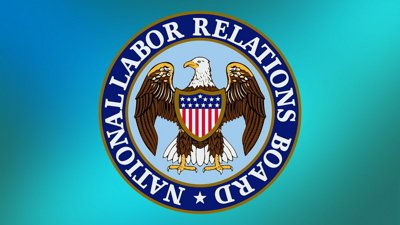The hearing on big tech antitrust matters on Wednesday was an embarrassment, and not a single governmental official there had the ability, will, or both, to bring any of the CEOs on hand to task.
The very best you can say about Wednesday's hearing is that it was bipartisan. But you can only say that because Democrats and Republicans alike displayed equal ignorance, and favored their own political careers instead of doing the job they said they were there for.
Whether you think Apple, Google, Facebook, and Amazon are shiny-clean saints, slightly murky figures, or outright criminal, it doesn't matter. If there's anything to get away with, they got away with it — and that was it, that latest round was over with nobody but the tech CEOs scoring any points.
America originally took the basics of its legal system and its hearing procedures from the UK, where one of the authors of this editorial is from. In the UK, there is a weekly Prime Minister's Questions session, the PMQs, and it is lauded as among the greatest examples of democracy in action — but only by the people involved. To the people, it is an embarrassment. Highly paid and in theory highly educated people act in it the same way schoolboys do in the yard.
And for the Americans on the staff, this was more of the same ignorance and posturing on the irrelevant that we've seen for the last 20 years. It was elected officials wrapping themselves in the flag, trying to score points for re-election campaigns. Instead of listening to answers, they'd cut off the answers, and keep reading what were pre-prepared statements in the form of the worst Jeopardy game show-like presentation possible.
Not one single person facing off against Tim Cook and the rest, did a good job and got a good answer. There was Rep. Mary Gay Scanlon who had specific questions about Amazon's alleged destruction of rival Diapers.com, but she was only able to make Jeff Bezos squirm until her time was up. And, that diapers.com example was from more than a decade ago.
But, at least Scanlon came armed with specifics and research. This hearing purportedly followed an investigation begun back in 2019 but most appeared to have been briefed for the first time on their way into the room.
More platform confusion on display belies bigger knowledge problems
As an AppleInsider reader, the difference between Twitter and Facebook is so obvious to you that it seems impossible anyone could get them mixed up. If you're not a user, though, it's all one big social media monolith and it's not your job to find out which is which.
But, knowing what the differences are in a hearing ostensibly about big tech power, it literally was the job of the committee to know the difference. You might hope that they would already know the difference between Twitter and Facebook, and that they would know what an app is. The fact that they didn't isn't shocking at this point, and the fact that they were incapable of finding out during this entire investigation is shameful.
At first, this seemed like it might be similar to the decision then-senator Steve King made when he tried to grill Google's Sundar Pichai about an iPhone issue. It might or might not have been technological ignorance, but it was certainly political maneuvering and it was playing to the crowd instead of trying to find the truth.
The representatives in this hearing did not know what they were asking either, and that is a clear abdication of responsibility. You and I can't pin Mark Zuckerberg up against the wall and get him to answer for years of Facebook's issues. This august body could, and have the power to do so — and they just didn't.
Five minutes in government meetings is meaningless, no matter how many laps you take
After significant wrangling by both the committee and the tech CEOs, each committee member was granted what turned out to be three five-minute slots in round-robin and parliamentary fashion in which to ask questions. Obviously, that's inadequate. But, apparently if you give a politicians five minutes, they will take the five minutes. We counted about four minutes and ten seconds on the average per five-minute allocation, for the representatives themselves and their political agenda.
Even the ones who actually did ask questions instead of proselytizing, they tended to interrupt the answers in a handful of seconds. Sometimes that was right and necessary — these four big tech people are not dumb and they know five minutes can be eaten up very quickly with some padding.
But most of the time, the interruptions were not to get back on topic or to delve or to pull a CEO up for talking nonsense — and there was a fair amount of that nonsense, but discussions of all the CEOs portraying their companies as scrappy underdogs under constant threat is a topic for another day. Most of the time, a representative would interrupt an answer in order to ask their next pre-prepared question with no regard to the answer just given. Answers don't matter to them, being seen to ask your questions does.
Repeatedly, too, we had the outright offensive demand that the CEOs answer complex issues with just a yes or no. If you're allowed a complex answer, you can hide in the details but there's a chance you'll reveal the truth. With a yes or no, there isn't.
The only people who ever demand a yes or no, are ones who have no interest in the answer, or in the truth. They solely and exclusively care about how they look to their voters back home.
There used to be an office in the US designed to help with this, but it is long gone
In 1972, The United States Congress established the bipartisan Office of Technology Assessment (OTA). It was specifically established to educate and brief the House and Senate on complex scientific and technical issues of the day, and was instrumental in the early digital distribution of governmental documents to not just the feds, but to the public as well. It was governed by 12 members of Congress — six Republicans and six Democrats and had a staff of 143 people, mostly scientists, with a smattering of support people.
It cost the federal government about $22 million per year in the early '90s. That's millions, not billions. It was dissolved as unnecessary and "wasteful" in 1995, with arguments saying that governmental officials were more than capable enough to understand and govern fairly on the issues and technologies of the day.
They weren't capable of doing that without the OTA then, and as the years have passed, this has only gotten worse, and the skeleton crew of mostly non-scientists doing this kind of work at the Government Accountability Office is underfunded and understaffed for the increasingly complex matters at hand. What isn't clear, is if this inability to govern on these matters without education is willful, or just incompetent.
Of course, it isn't clear how much the concept manned by a skeleton crew helps with the problem if that inability to deal with complex scientific or technological matters is willful. The European Parliamentary Technology Assessment (EPTA) performs roughly the same tasks, with roughly the same manning, and it doesn't seem to help decisions there either.
Not the first time, and it won't be the last
At first glance, this seems like more of the same that we've come to expect from the US government when it comes to technology. But, this time they went too far. Wednesday's hearing was the least productive federal hearing we've had the misfortune to have to sit through in two full decades. And yes, this includes the supreme court case discussing live video streaming service Aereo that likened the service to a parking lot and a dry cleaner's shop, somehow.
You know that each of the four CEOs had a debriefing with their executive board after the hearing. You can bet that each one of them had a stiff drink and counted their lucky stars that it went the way it did.
As CEOs, they should be relieved. As Americans, they should be scared. The House of Judiciary correctly and properly identified a huge issue, and it spoke correctly of the importance of this hearing. But then, it destroyed its authority by presenting a circus of schoolyard children. And, that comparison probably isn't fair to the children.
Maybe the next hearing, or the one after that will be better. We're not expecting it, though.
 William Gallagher and Mike Wuerthele
William Gallagher and Mike Wuerthele













 Charles Martin
Charles Martin




 Malcolm Owen
Malcolm Owen
 Andrew O'Hara
Andrew O'Hara








45 Comments
Okay gang, do me a favor, and we can keep this thread open.
We didn't make this partisan, and please don't take it as an opportunity to do so. And, please stay on topic.
"Maybe the next hearing, or the one after that will be better. We're not expecting it, though."
The next hearing is by the EU. They tend to be tougher with respect to these things than their American counterparts.